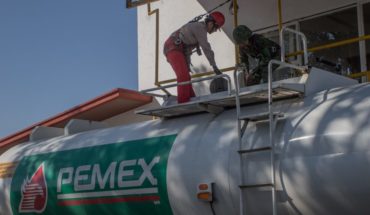With the aim of generating a scientific-medical structure for cancer research, which takes into account the genetic diversity of the Argentine population and combines clinical research with the social determinants of health, a group of more than 30 researchers, doctors and technicians from four provinces of the country came together to create the Network for the Study of Diversity in Breast Cancer (REDICAM). The initiative seeks to improve outcomes and access to treatment for one of the most aggressive subtypes of the tumor that sickens 20,000 women in the country each year and represents the second leading cause of cancer death in that population. The proposal, which was one of the winners of the call for “Projects of High Impact Federal Networks” of the Ministry of Science of the Nation, will obtain the equivalent in pesos to U$S 250 thousand per year for four years and focuses specifically on the study of the HER2 + subtype of breast cancer from the perspective of precision medicine applied to public health. One of the goals of REDICAM is to confirm whether, indeed, women in the north of the country are more likely to develop this type of aggressive tumor than other subtypes, a hypothesis that arises from studies that showed higher rates of HER2+ cases in populations with a higher proportion of Native American ancestry in Colombia and Peru. If that were the case, it also proposes to analyze how to improve access to existing therapies, in order to correct current inequities. (Left to right: Melisa Paolino, Carina Argüelles, Andrea Llera, Emma Alfaro and Elmer Fernández, part of the group that integrates REDICAM) HER2+ breast cancer is one of the most aggressive and is associated with a worse prognosis. However, it also has a specific treatment, directed against the HER2 protein, which results in a high response rate and an improvement in survival. Although the Argentine health system provides it, the reality is that sometimes it is not administered in a timely manner.“Precision medicine is not only about generating high-cost drugs designed for certain individuals, but also about developing health policies that take into account the determinants of health, the circumstances in which people live. For that, it is first necessary to know them in an integral way. At present there is a very important vacancy about those of our population, and it is something that Argentine science is the only one that can solve”, said Dr. Andrea Llera, CONICET researcher at the Molecular and Cellular Therapy Laboratory of the Leloir Institute Foundation (FIL) and general coordinator of the initiative.“The data and results of this project will be an essential input for the Argentine health system, which will have concrete and solid information to better plan the needs of molecular diagnosis and access to targeted treatment in this subtype of breast cancer and also to include it in the design of breast cancer prevention policies in general”, said Carina Argüelles, PhD in molecular biology, researcher at the Catholic University of the Missions (UCAMI), in Posadas, and coordinator of the NEA node of the REDICAM.La initiative also involves researchers from the Center for the Study of State and Society (CEDES) and the Genomics and Bioinformatics Unit of the Anlis-Malbrán Institute, in Buenos Aires; the Foundation for the Progress of Medicine, in Córdoba; and the Institute of Andean Ecoregions (INECOA) of CONICET, in San Salvador de Jujuy, more doctors and specialists from the Arturo Oñativia hospitals in Salta and Madariaga in Misiones, to which other health centers in northwestern Argentina will be added. Unlike other regions of the world, Latin America is characterized by a massively mestizo population where the ancestral genetic and sociocultural characteristics of native peoples and migrants converge.“Today it is known that the genetic variability provided by ancestry has a strong impact on health issues, in particular in conferring more or less risk of developing certain diseases. Cancer is one of them. The genetic heterogeneity of our region would indicate that not all the solutions provided by studies in other countries are applicable to ours”, added Llera, who recognized that there are other determinants that modulate genetic risks and that influence the appearance and evolution of pathologies, such as the circumstances in which people are born, grow, work, live and age.“Assuming that in the regions of our country with the highest prevalence of Our hypothesis is that this would constitute a particularly vulnerable population, since it is more likely to encounter barriers to its correct treatment: more aggressive tumors, more expensive specific medication that requires the determination of the associated marker HER2 in advanced pathology centers, added to the usual difficulties of access to health presented by this population of the Argentina”, the authors described in the drafting of the project. As a first step, REDICAM will carry out a pilot project, which arises from the previous experience of many of its members in the Latin American Cancer Research Network (LACRN). For two years, a cohort of about 900 patients attending the aforementioned hospitals will be created, to which a questionnaire will be applied to survey lifestyles, employment situation, socioeconomic and educational level, among other social determinants of health, and a blood sample will be taken that will be frozen until processing. A sample of the tumor remaining from the one used for diagnosis will also be taken.“If the association between Native American ancestry and the greater relative proportion of the HER2+ subtype is confirmed, we would be facing a discovery that would modify the view of breast cancer as of sporadic origin”, Argüelles concluded.
They create a network to bring precision medicine to breast cancer treatment
September 4, 2023 |





